From Nollywood’s Heart To The World: Richard Mofe-Damijo
Richard Mofe-Damijo, widely known by his initials RMD, is a legendary Nigerian actor and lawyer whose influence goes beyond the screen. RMD’s acting career started in the late 1980s when he debuted on the widely watched Nigerian television show, Ripples. He rapidly attracted worldwide recognition and admiration from fans thanks to his alluring personality on television.
Mofe-Damijo has played various roles throughout his career, showcasing his flexibility and capacity to bring life to any role he takes on. Whether serious or humorous, he regularly wows audiences and critics alike. Among his well-known films are Oloibiri, King of Boys: The Return of The King, Diamond Ring, and Out of Bounds, among others.
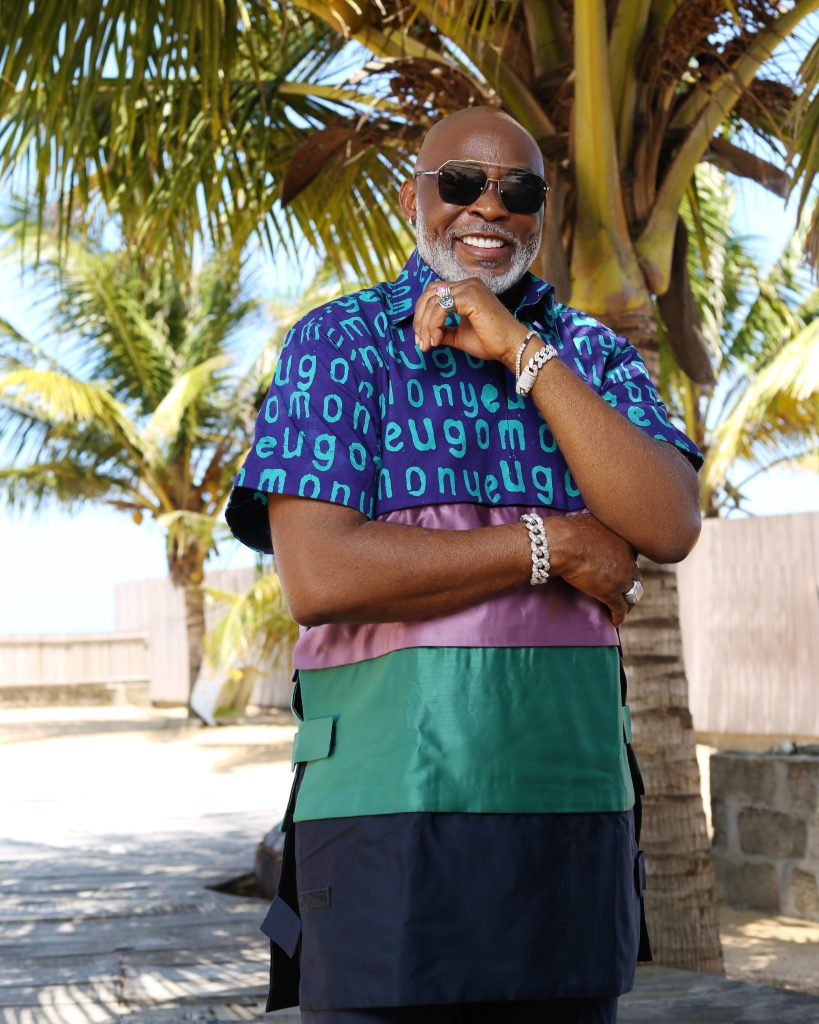
In addition to his acting skills, he has a legal degree, which gives his artistic endeavours a unique perspective. Along with his professional accomplishments, RMD is renowned for his slick appearance and charm.
Richard Mofe-Damijo continues to enthral audiences and make an enduring impression on the storytelling industry thanks to his enduring talent, endearing demeanour, and devotion to his profession.
In this chat with TheWill DOWNTOWN, he discusses the heart and soul of his remarkable journey, the indomitable spirit of Nollywood, and the profound love for his craft that fuels the flames of his enduring impact.
You’ve had an incredible journey. How do you manage to balance these different aspects of your career? What drives you to excel?
I think it’s more like a fear of failure, that feeling of not being acceptable, and also, there is always this feeling of not wanting to let yourself down and those who depend on or look up to you. So that’s a major driving force. In terms of balance, you don’t realise how much work you’re putting in or what you’re doing when you are in it. I just put in work always for what I’m doing. I get an out-of-body experience when I’m sitting down at a function, and my CV is being read; that’s when it hits you that, yeah, maybe I have put in some work.
Looking back at your earliest days in Nollywood, what was the most memorable experience that shaped your passion for acting and convinced you that this is what you should be doing?
My acting predates Nollywood. I studied theatre during my university days and graduated 40 years ago, so it has nothing to do with Nollywood.
Acting has always been something that I always wanted to do. Before Nollywood, I was already in it. You know, we just seamlessly drove into Nollywood.
I’m happy I’ve been a part of its growth and development.
Throughout your career, you’ve portrayed diverse characters. Is there any particular role that challenged you the most, and how could you go past it?
Every role comes with its challenge; I take them in bit sizes, it depends on what they come with. Some of the more challenging ones are the ones that I probably have to alter my body physically, and I’ve done that a couple of times, physically altering my body to fit specific roles. I’m in the process of going through that again. I did it for a film called Oloibiri. I had to lose a lot of weight.
I also did it for a film yet to be released called The Black Book. So it depends. I have a film in October that I’m trying to lose weight for again, so it depends sometimes.
It’s a lot more challenging when you have to alter your shape physically.
Nollywood has evolved significantly. What changes have you observed in the industry, and how do you think that these changes have influenced storytelling and representation in Nigeria?
I think one of the biggest differences now is the streaming platforms. It’s a global practice. So, standards have improved.
It has also affected our storytelling. Our screenplay is much more improved because you have to tick the boxes the stream has provided, which has changed the game. It has also provided good data for watchers of the industry to be able to calculate, in financial terms, how much the industry is worth. So, it has given Nollywood a new purpose to compete with other cinematic cultures in the world. So, that has helped.
So, we’re looking at more collaborations in the future.
Nollywood has also seen its fair share of challenges and criticisms. Can the industry continue to grow and improve its global reputation while preserving its unique identity?
I think it’s already doing that. Every sector of the economy goes through that stage.
It will be a struggle, of course, but I think we’re doing what we must do. You are always looking very stylish.
So, style and fashion are synonymous with your image. How has your style evolved over the years?
Do you have any memorable fashion choices or fashion regrets from your earlier days in the limelight?
Absolutely no regrets. My mother sold clothing for a living. So, I was influenced rather very strongly by my mother’s sense of style. My father was also a very stylish man. So, I grew up being very watchful and mindful of whatever I wore and also being neat.
My mother was a stickler for neatness. So, I grew up with all of those traits.
My philosophy is to keep it simple. For me, keep it simple. Simple never goes out of fashion. It never goes out of fashion when it’s simple, stylish, and classy.
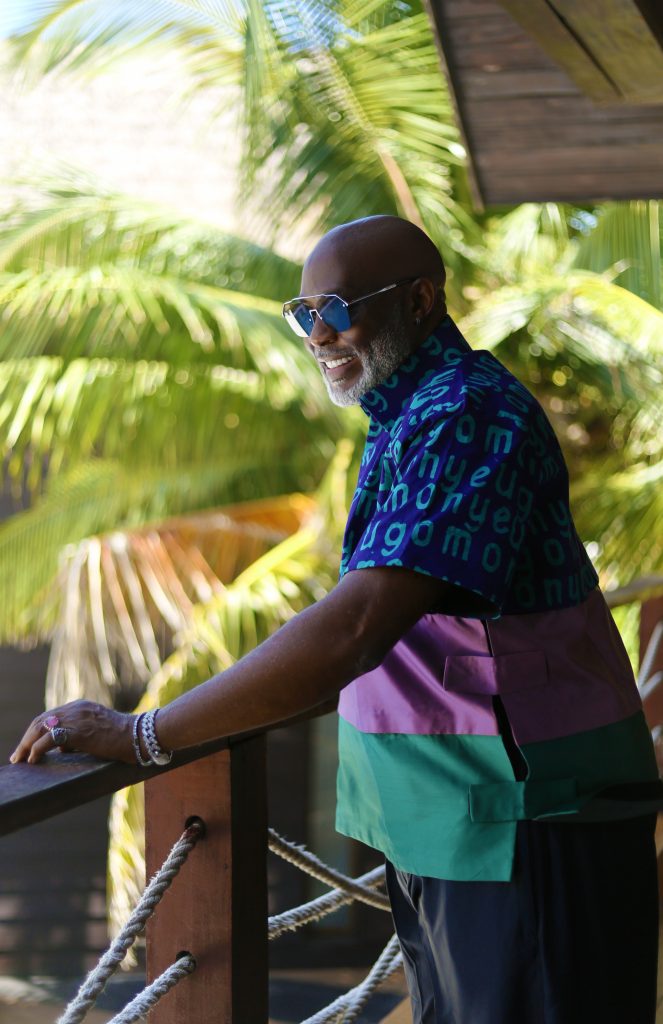
Throughout your career, you’ve collaborated with many talented actors and filmmakers. Is there a particular co-star or director who you had a profound influence on? And what valuable lessons did you learn from the collaborations?
I have worked with a lot of directors. In the early days, I worked with the likes of Tade Ogidan, Chico Ejiro, Zeb Ejiro, and of course, Amaka Igwe. Those early days formed what we are going through today. One of the most important directors that I’ve worked with is Tade Ogidan. He’s been an amazing guy. He drove me when I was younger and just got into the business. Tade was probably the most influential director in my life because his standards were very high and also, because I was a willing tool and a willing collaborator, he would drive me to the highest points. He usually would get the best performances from me. I love to work with directors who understand the craft and would drive an actor to that point. I also enjoy working with younger directors that I’ve worked with over the years.
Your consistency in the industry is commendable. What habits or routines have you developed over the years that have contributed to your longevity and relevance?
It’s absolute dedication to my craft. I’ve never taken the audience for granted. Once you do that, consistency becomes a lifestyle. For me, it is the fact that I don’t take my craft for granted. I will be the first to show up when I’m asked to show up, and when I show up, I don’t just show up; I show up ready.
Beyond your professional achievements, what are some of the most significant life lessons you’ve learned along the way? How has it shaped your perspective on success?
Love for family. I think that I subscribe to giving a hand. When a candle lights other candles, it doesn’t diminish the one providing the light source. For me, being your neighbour’s keeper is an abiding philosophy of mine.
Many aspiring actors look up to you as a role model. What advice would you give young up-and-coming actors who aspire to have a long-lasting and sparking career in the entertainment industry, just as you’ve had?
Know your craft and be dedicated to it like your life depends on it. As I said, don’t ever take your audience for granted, especially; people who validate your craft.
That’s my advice.
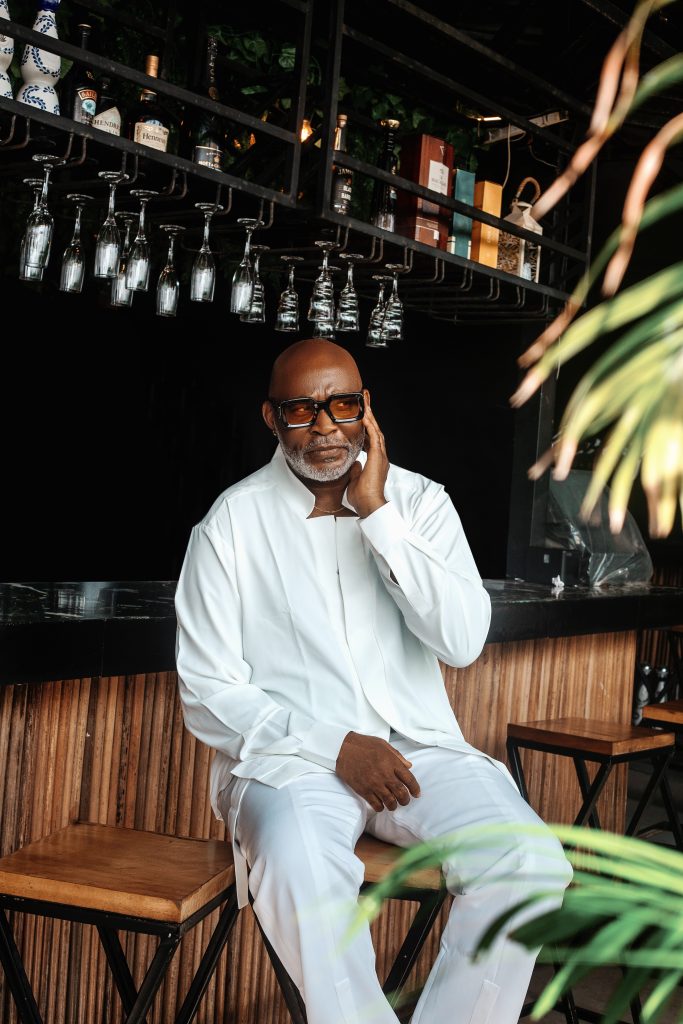
What’s the most underrated aspect of filmmaking, and why do you believe it deserves more recognition?
They’re all moving parts of a train. I don’t think any is more important than the other. Everything is important. It is in the ensemble that true art comes to life. It is in the pulling together that true art comes to life. It’s not about one aspect taking the shine. It is in the fact that everybody pulls together. That’s when there is a win, but when you isolate anyone in one department, you lose the plot.
Nollywood has the potential to influence perceptions of Africa globally. How can the industry play a pivotal role in shaping more accurate and diverse representations of Africa?
I think that is already in the process. I mean, we’ve been doing that. I have met people from all over Africa who tell me how they’ve been watching our films from when they were children.
Nollywood’s influence on African countries and the rest of the world is so immense that it is the result that we are reaping today. The onus is on us to now constantly own that narrative and push whatever African agenda we want to push.
Just making sure that we rewrite and let people unlearn what images they have of Africa as poor, starving people that need to be rescued by the rest of the Western world.
As an accomplished individual with multiple talents, you’re a lawyer. What personal goals and creative projects do you still hope to accomplish in the future?
Well, you are only as good as your last job. I still want to do more films. I’m retreating more to behind the camera now. I want to do a lot more work producing. I will still be in front of the camera, but I want to do a lot more work behind the camera. Write more books and collaborate with many people to do socially impact things. I also want to be a voice for something important: women, children, and family values, among others.
Throughout your career, you’ve embodied various characters with unique traits and personalities. If you were to describe yourself as a character in a movie, how would you portray Richard Mofe-Damijo, the actor, lawyer, and author?
Well, flawed, but with a good heart and will always fight for justice and equity. He won’t walk away from oppression.
As an author, what inspired you to write, and how does the creative process of writing differ from preparing for a role in a movie?
I don’t think that they are different.
For anything that you have to do, you have to prepare. If you spend a lot more time preparing, it’s easier to accomplish the task. I’m a subscriber that if you have a tree to cut down, it’s better to sharpen your axe or cutlass or whatever you want to use to hack that tree down. It’s better to spend more time sharpening so that you spend less time pulling down that tree than going on that tree with a blunt axe or cutlass. So that’s what the process is. When you do prepare, then it’s easier to accomplish your goals. A lot of people underrate the preparation process.
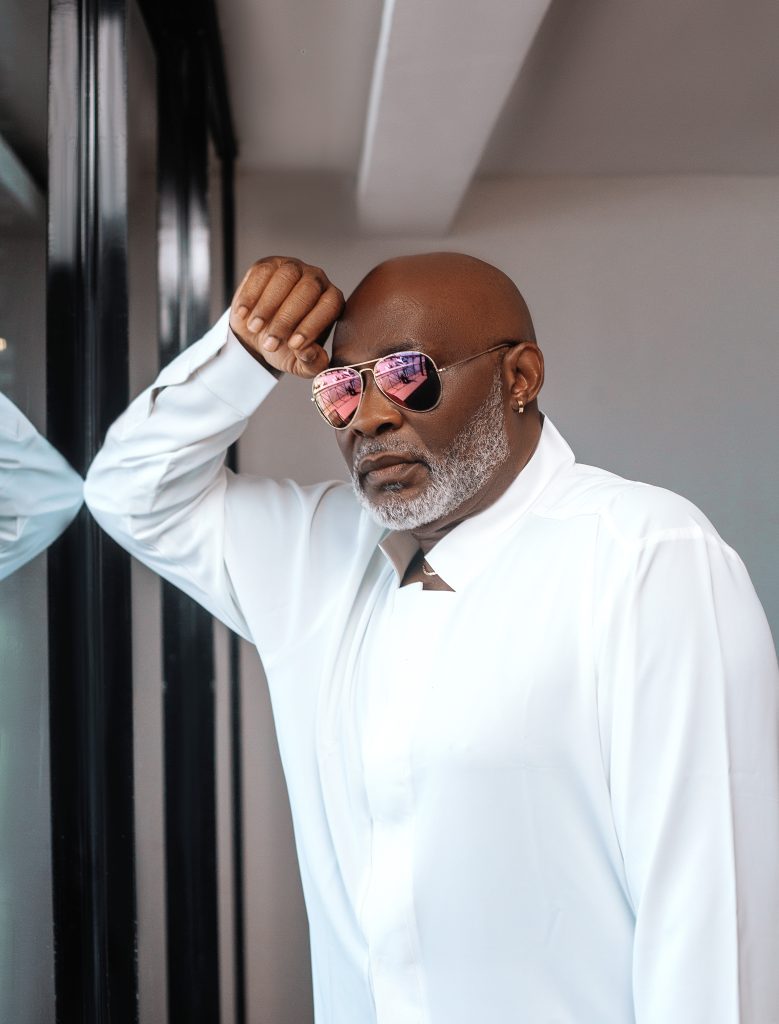



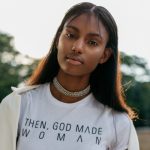

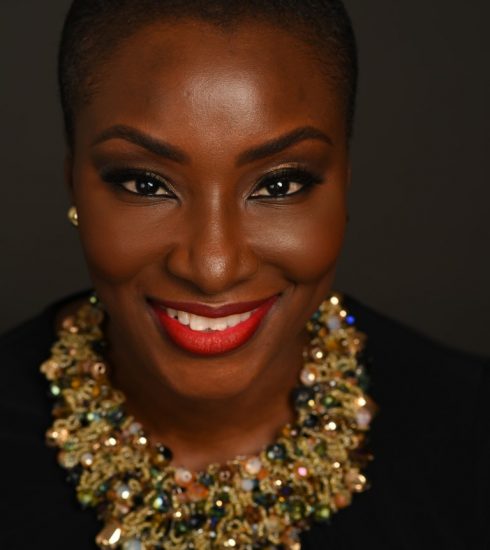

Martina Carter
2 years agoHe is my favorite Nollywood Actor. Keep up the good work!